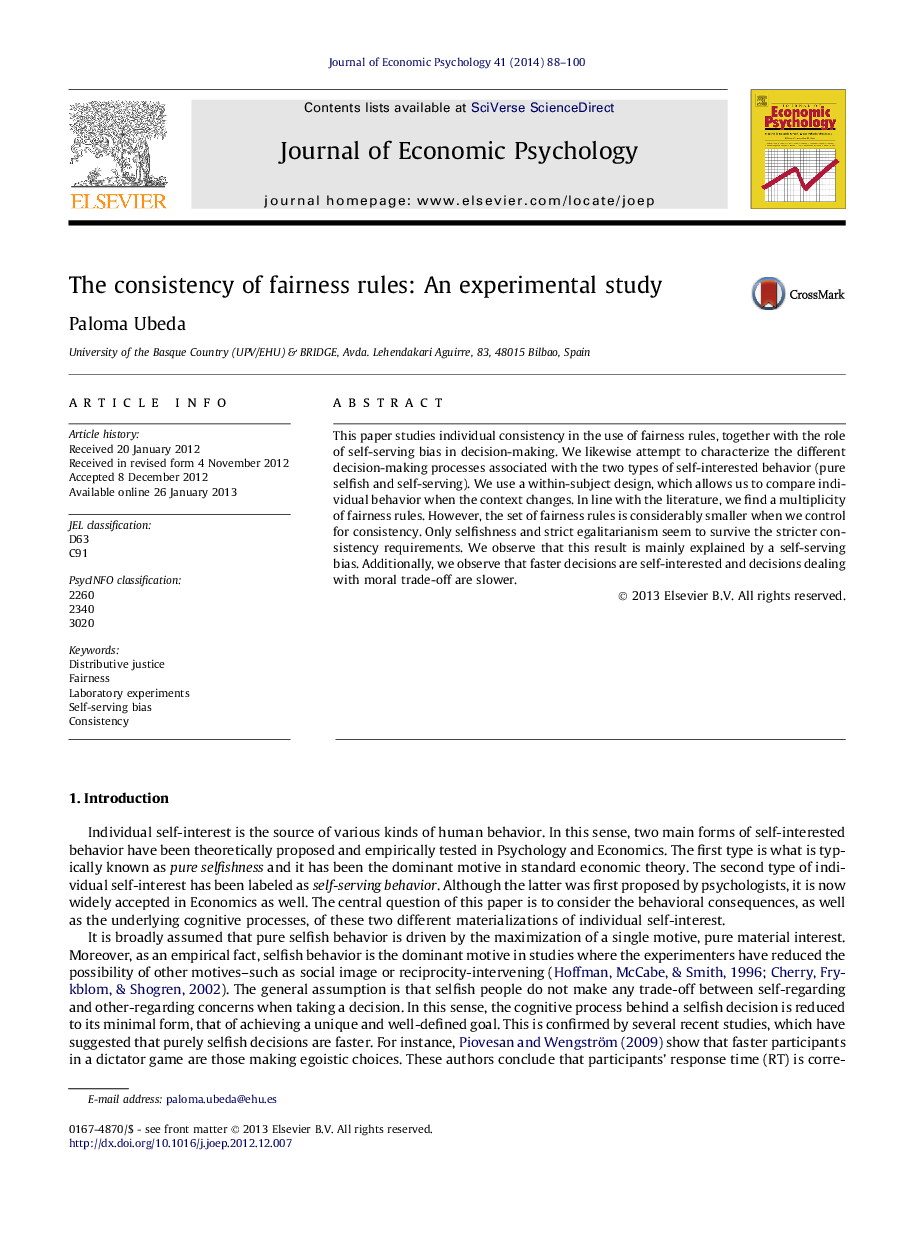| Article ID | Journal | Published Year | Pages | File Type |
|---|---|---|---|---|
| 884964 | Journal of Economic Psychology | 2014 | 13 Pages |
This paper studies individual consistency in the use of fairness rules, together with the role of self-serving bias in decision-making. We likewise attempt to characterize the different decision-making processes associated with the two types of self-interested behavior (pure selfish and self-serving). We use a within-subject design, which allows us to compare individual behavior when the context changes. In line with the literature, we find a multiplicity of fairness rules. However, the set of fairness rules is considerably smaller when we control for consistency. Only selfishness and strict egalitarianism seem to survive the stricter consistency requirements. We observe that this result is mainly explained by a self-serving bias. Additionally, we observe that faster decisions are self-interested and decisions dealing with moral trade-off are slower.
► We study individual consistency in the use of fairness rules. ► The cognitive processes behind self-interested behaviors are also studied. ► Only selfish and strict egalitarian people take consistent decisions. ► Most of participants’ decisions are self-serving. ► Purely selfish decisions are faster than self-serving choices.
